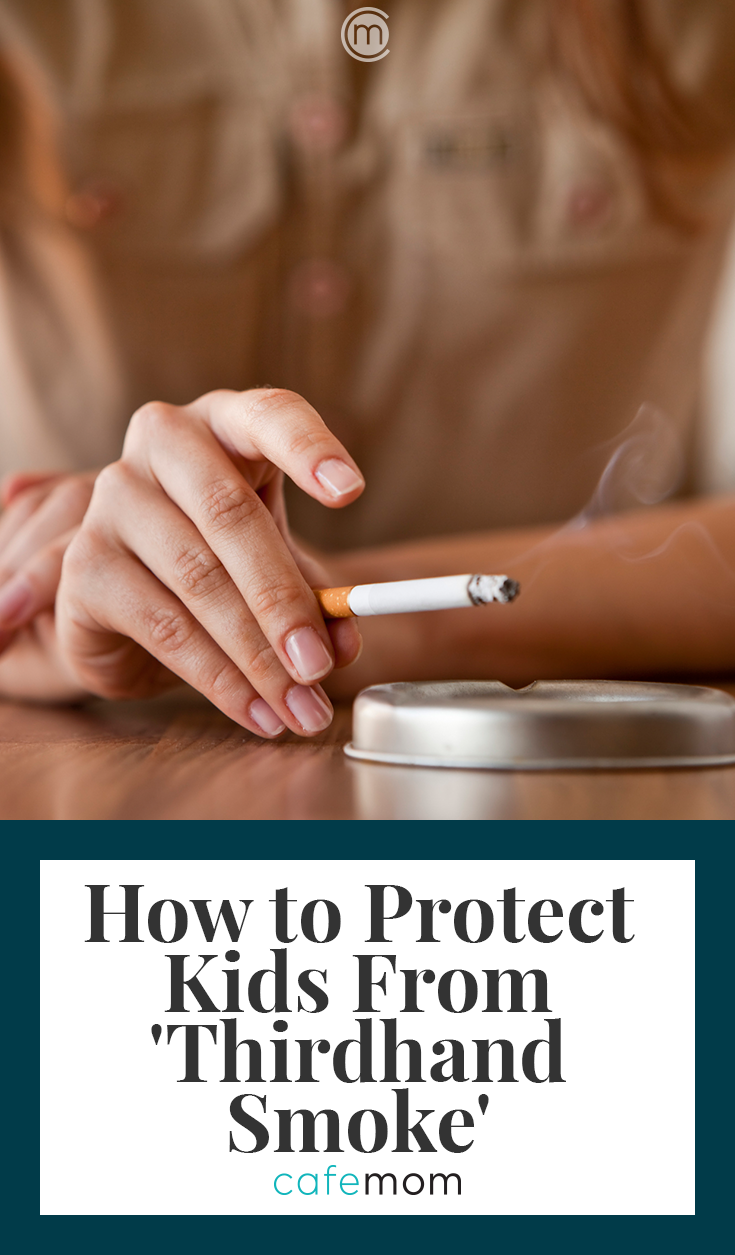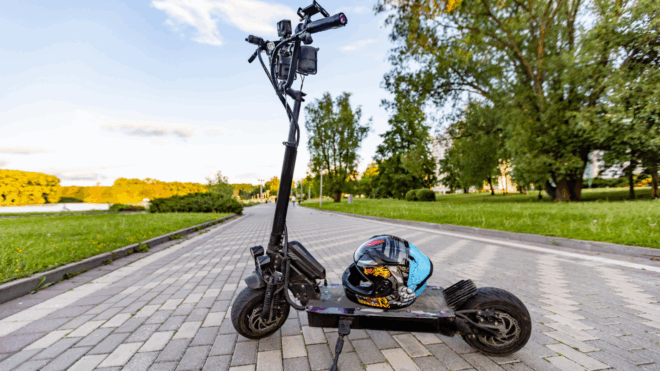We all know the dangers of secondhand smoke for babies and kids (exposure has been linked to asthma, ear infections, and even sudden infant death syndrome, among other issues), but according to a new study, so-called "thirdhand" smoke could be just as bad. Thirdhand smoke isn't actually smoke at all — it's the residue from cigarette smoke that sticks to clothing, walls, furniture, and other items — but it contains many of the the same harmful chemicals present in mainstream and secondhand smoke, and if your infants or young children ever spend time around a smoker, they could be particularly vulnerable.
Researchers from the Department of Energy's Lawrence Berkeley National Laboratory joined forces with scientists at UC San Francisco and Nanjing Medical University for the study, which was published in Scientific Reports.
"Up to the present, there is very little evidence on the unique health effects imposed by exposure to thirdhand smoke, as we have only begun research in this field," lead study author Bo Hang, a Berkeley Lab staff scientist, told CafeMom. And what they're finding now is surprising, he said.
More from CafeMom: If You Started Smoking Again After Having a Baby, It's Probably Not Your Fault
First, exposure to thirdhand smoke from only three weeks after birth until weaning caused significantly lower infant weights in mice and altered blood-cell counts associated with the immune system and allergic reactions in both infant and adult mice. "The latter effects were persistent for many weeks after the exposure ceased," said Hang.
Secondly, the pattern of body weight change in infant and young mice apparently followed the changes seen in people who smoke/quit smoking. In other words, when adults smoke, they usually lose weight, and when they quit smoking, their body weight quickly returns to normal. The mice in the study followed the same pattern after being exposed to thirdhand smoke.
These findings are in line with existing observations about the effects of thirdhand smoke, which can, of course, also affect adults (among the most common complaints are stuffy nose, eye irritation, and allergic symptoms; asthma can also be aggravated by thirdhand smoke). But kids are the most vulnerable, said Hang.
"Babies and children are maybe even more sensitive than adults, as they spend more time on the contaminated floor, have frequent hand-to-mouth actions, more skin contact with surfaces, and breathe in more dust-contaminated air than adults, in relation to their body size," he explained.
More from CafeMom: Exposure to Secondhand Smoke During Pregnancy Is Even Worse Than We Thought
"Children may also be more susceptible to the harm of thirdhand smoke as they may metabolize chemicals differently than adults, and are rapidly developing. High levels of thirdhand smoke breakdown products have indeed been measured in the urine of infants and young children."
Obviously, the safest choice for parents to make is to protect their babies and kids from any exposure to thirdhand (or secondhand) smoke. But let's say Grandma has smoked a pack a day for 40 years — telling her she's not allowed to hold her new grandchild until she quits smoking isn't particularly realistic. So what can you do to minimize the risk?
According to Hang, minimizing children's contact with smokers' skin and clothes that have been contaminated with thirdhand smoke can help.
"For example, smokers should wash their hands, shower, and change and wash their clothes before holding a baby," he said.
You can also clean surfaces frequently and dust, and vacuum with a HEPA filter-equipped vacuum. Naturally, smoking should not be allowed at any time indoors, near children, or near homes where smoke could enter a home through windows, doors, or ventilation systems.
Scientists hope that further research will reveal more information about whether the biological changes caused by thirdhand smoke can lead to specific diseases. They also hope their findings lead to more policies like the bill passed in California requiring private day care centers to ban smoking in and around the premises during off hours, as well as hours when children are present.
In the meantime, there's certainly enough evidence for parents to be concerned!





